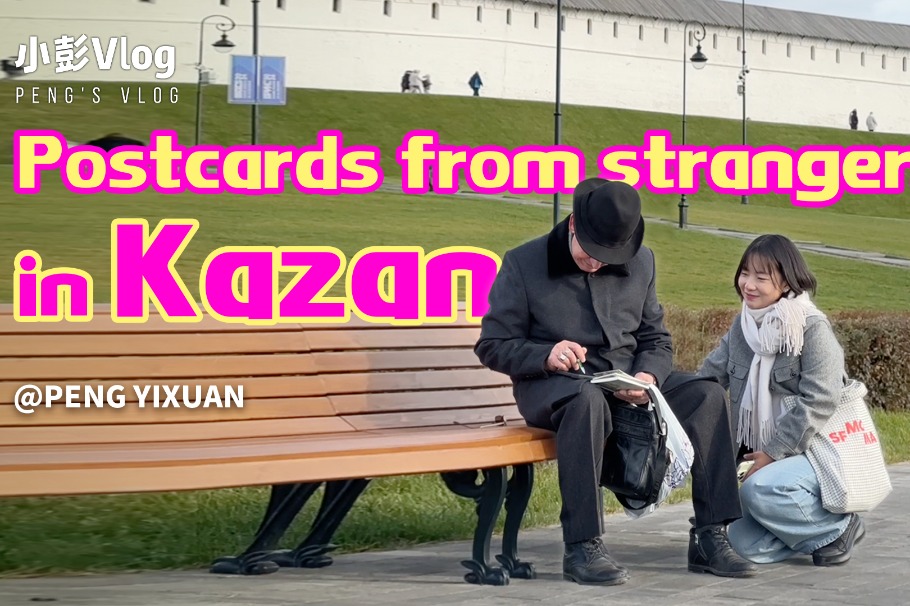EU shouldn't reject win-win economic deal


Sources from Brussels are claiming that die-hard Atlanticists of the European Commission — those who support close cooperation between Europe and North America — are fed up with what is described as "China's economic practices". This has led some mainstream media outlets to speculate regarding a potential trade war with China, especially in the field of batteries and electric vehicles, amid demands for China to open up its markets further to accommodate European businesses.
Of course, if one follows China's actions and words carefully, such an offer has never been off the table for Europe. In fact, at the end of 2020, China and the European Union even had a deal to achieve just that, which was known as the Comprehensive Agreement on Investment.
It would seem that the EU has given up talk of such a deal and is instead now intent on posturing threats of discontent to China in order to try to force through unilateral terms.
There is little guarantee that such a confrontational approach will work, as the EU has never been able to exhibit autonomy as an independent foreign policy actor.
The EU should return to the table accordingly and seek win-win cooperation with Beijing, which is in the interests of both parties.
The Comprehensive Agreement on Investment was a deal thrashed out between European and Chinese representatives over nearly a decade. The deal was designed especially to improve Europe's access to the Chinese market across a wide range of sectors and, in return, secure continued Chinese access to European markets, including a stake in its renewable energy industry.
The deal reached its climax in 2020, at a time when the administration of then United States president Donald Trump was pushing a dramatically hostile policy toward Beijing, and was clinched "in principle "on the very last day of that year. However, the move provoked outrage among the "transatlantic elite", think tankers and journalists, all of whom accused Europe of selling out on its loyalty to the US by forging an agreement with China.
It was little surprise that the administration of US President Joe Biden sought to undermine the deal as quickly as possible upon coming into office just a month or so later. To do so, it dramatically ramped up anti-China propaganda and showcased "transatlanticism" by demanding a coordinated push for sanctions on the Xinjiang issue. The EU, in its foolishness, joined in the effort and subsequently drew countermeasures from China.
Anti-China members of the European Parliament refused to ratify the Comprehensive Agreement on Investment, and although it was still mentioned as a political desire from European leaders, soon enough the European Commission, led by the hawkish Ursula von der Leyen, who closely toes the US line, effectively gave it up altogether.
Instead of advocating for this win-win deal, von der Leyen started talking about so-called "de-risking" and called for diversifying Europe's trade relationship with China. Despite this, politicians who are like her have continued to demand more access to the Chinese market and lambasted so-called "unfair" practices, but not in the context of seeking a win-win deal such as the Comprehensive Agreement on Investment. They have effectively demanded concessions while invoking the right to shut China out of certain European markets. This logic is absurd and flies in the face of balanced and measured cooperation.
Von der Leyen has been widely criticized for being beholden to the US and quick to follow its line on every single issue, which has damaged Europe's ability to operate autonomously.
Any European trade war with China would be disastrous. The foreign policy choices that the EU has made in following US steps have left it with expensive power supplies, high manufacturing costs and a process of "de-industrialization "which has been a net gain for the US. The EU's renewable energy goals in particular are highly reliant on China's well-established manufacturing capacity and supply chains, which they do not have and certainly are not in a position to replicate.
Europe's capitulation to US-led wedge politics on the Comprehensive Agreement on Investment was a decisive blow to its collective interests, and the idea that confrontation can substitute for cooperation is deeply misguided.
China and the EU constitute the two largest single trading parties in the world. Expanding mutual market access would be a desirable and beneficial outcome, but it should be done without resorting to geopolitically motivated confrontation or transatlantic capitulations.
The author is a British political and international relations analyst.

































